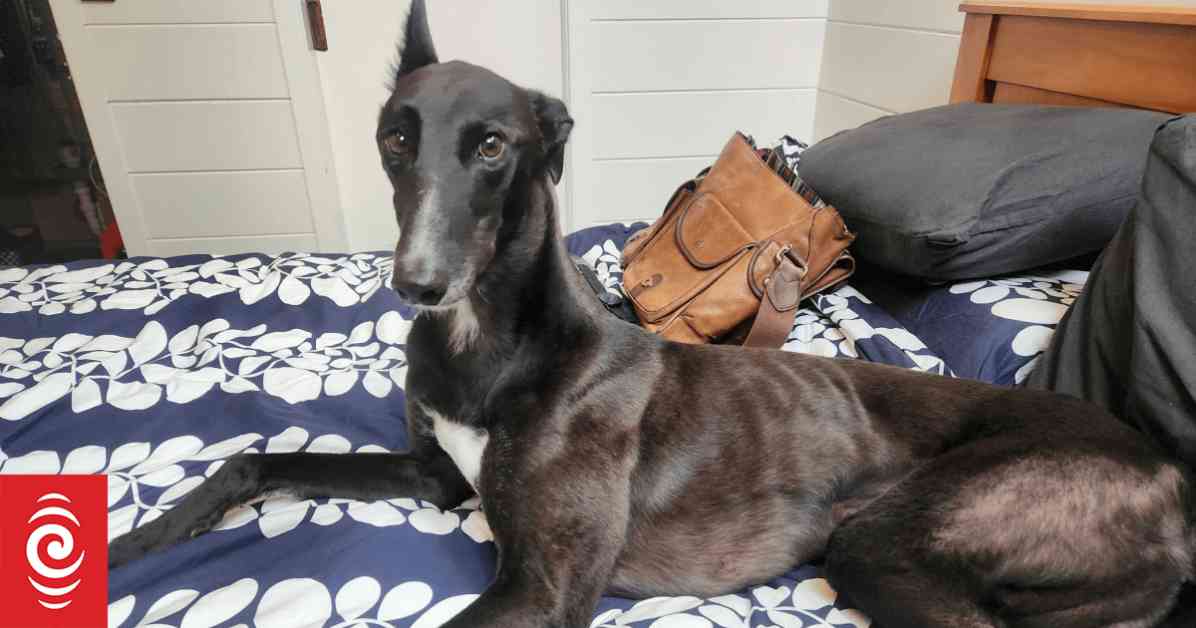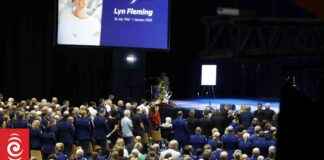A Greyhound Adoption Controversy Unveiled: An Intimate Look at the Clash between a Dog Owner and Adoption Agency
In the heart of a greyhound adoption dispute lies Eddie, formerly known as Spot, a dog caught in the crossfire between a new owner and the agency that facilitated his adoption. Tess Ford, the dog’s new caregiver, found herself at odds with Nightrave Greyhounds over what she perceived as a restrictive gag clause embedded within the adoption terms and conditions. The adoption agency stipulated that adopters refrain from labeling the dog as a rescue and engaging in anti-greyhound racing activities, a clause that Ford found unsettling.
Ford’s journey with Eddie began in February when she welcomed the former racing greyhound into her home. Admitting to a casual skim of the adoption terms and conditions, Ford revealed her disregard for the fine print, a decision she later regretted. “I’m one of those people that just never does that. In hindsight, probably a good idea,” she remarked, reflecting on her initial approach to the adoption process. Unbeknownst to Ford, Nightrave Greyhounds proudly identified as pro-racing, a revelation that took her by surprise upon the arrival of a representative to deliver Eddie.
The conflict between Ford and Nightrave escalated when Ford took to social media to express concerns about Eddie’s well-being and criticize the racing industry, prompting Nightrave to demand the return of the greyhound. Refusing to comply, Ford found herself embroiled in a heated exchange with Rachel Rae, Nightrave’s owner, who accused her of being an anti-racing activist and orchestrating a pre-meditated attack on the agency. Ford vehemently denied these allegations, emphasizing her genuine love for animals and her desire to provide a loving home for Eddie.
As tensions mounted, Ford sought legal counsel to navigate the murky waters of an adoption agreement that was never formally signed. Despite Nightrave’s reluctance to engage in dialogue with media outlets, Greyhound Racing New Zealand’s chief executive, Edward Rennell, defended the agency’s right to impose conditions on adoption, particularly those aimed at preventing greyhounds from being exploited by anti-racing groups. Rennell affirmed that agencies like Nightrave have the prerogative to set adoption guidelines aligning with their pro-racing stance.
Industry Perspectives and Legal Insights
In a bid to shed light on the legal nuances of the situation, University of Otago law professor Simon Connell underscored the challenges of enforcing unwritten agreements in adoption scenarios. Connell highlighted the importance of a formal contract in delineating mutually agreed-upon terms, pointing out the complexities that arise when conditions are not explicitly outlined in a signed document. Ford’s predicament serves as a cautionary tale, underscoring the need for clarity and transparency in adoption processes to avoid future conflicts.
Greyhound Racing New Zealand collaborates with multiple adoption agencies, each with its own stance on greyhound racing and adoption conditions. While agencies like Nightrave and Mayhounds advocate for pro-racing sentiments, Greyhounds As Pets adopts a neutral position. The varying perspectives within the industry underscore the complexities surrounding greyhound adoption and the inherent tensions between animal welfare and industry reputation.
A Call for Compassion and Understanding
Amidst the contentious landscape of greyhound adoption, Ford advocates for a shift in industry priorities, emphasizing the importance of ensuring former racing dogs find loving homes above all else. As New Zealand’s government commits to phasing out greyhound racing by August 2026, the spotlight is on the welfare of these majestic animals and the ethical considerations that underpin their transition from the racetrack to domestic life. Ford’s impassioned plea for empathy and understanding resonates with all stakeholders in the adoption process, urging a reevaluation of priorities and a renewed focus on the well-being of these gentle greyhounds.
As the saga of Eddie, Tess Ford, and Nightrave Greyhounds unfolds, it serves as a poignant reminder of the complexities embedded within greyhound adoption and the delicate balance between industry interests and animal welfare. Through Ford’s unwavering commitment to Eddie’s well-being and the broader conversation surrounding greyhound adoption practices, a narrative of compassion, advocacy, and introspection emerges, inviting stakeholders to reflect on their roles in shaping a more compassionate future for these beloved animals.

















